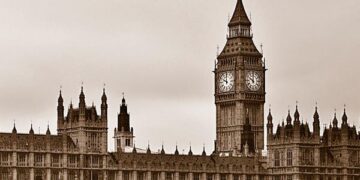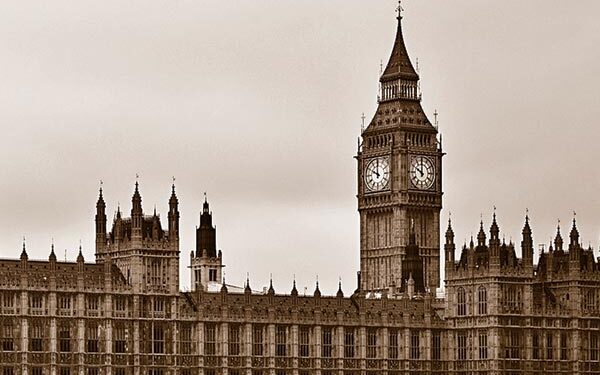The following are the excerpts of the proceedings in the House of Commons on the humanitarian pause in Israel and Hamas
Both the Lord Chancellor and I have made clear the position in respect of the International Criminal Court. I set it out in the House: it is not for Government Ministers and politicians to address these matters, but for the prosecutor and the administration of the International Criminal Court

Andrew Mitchell (Minister of State, Foreign, Commonwealth and Development Office)
I THANK the right hon. Gentleman for most of his comments and, in particular, his desire to ensure an extension of the cessation of hostilities. On what he said about the broader situation, the Opposition Front Benchers and the Government are in complete agreement.
The right hon. Gentleman asks what progress has been made in ensuring that the Foreign Office and the Government’s foreign policy is subject to proper scrutiny in this House. I completely agree with him that there is a sacred duty—I think that is the term that he used—to ensure that all that scrutiny is made available. I just point out to him the extraordinary authority that a former Prime Minister can bring to bear in carrying out those tasks, as he will have seen from Lord Cameron’s recent visit to the Middle East. Lord Cameron is the most senior Foreign Minister in Europe—and, indeed, in the region—and I think that both sides of the House will see the benefit of that in the days and months to come.
Madam Deputy Speaker (Dame Eleanor Laing)
I call the Chair of the Foreign Affairs Committee.

Alicia Kearns (Con)
This is a serious matter. The UK’s priority in the region is security and stability for the whole of the Middle East, yet today Netanyahu plans to push forward with a special budget that will fund expansions of the settlements by over $80 million. As a friend, we have a duty to say to Israel, “Do not proceed with this plan. It takes us further away from peace and, frankly, it will risk not only the truce, but the ability to get home hostages who are still held by their terrorist kidnappers.” What is my right hon. Friend doing to ensure that we speak plainly to our friends?
Mitchell
I thank the Chair of the Foreign Affairs Committee for her comments. She is entirely right that Israel must comply with international humanitarian law, and must not only prosecute but punish those who have been involved in settler violence. The Government are delivering tough messages to all sides in this dreadful conflict, and we will continue to do so.
Madam Deputy Speaker
I call the SNP spokesman.

Peter Grant (SNP)
I am grateful to the Minister for his statement, and I commend the hon. Member for Rutland and Melton (Alicia Kearns) for the integrity and courage with which she raised her concerns.
Does the Minister agree that the only way we will see a lasting and just peace in the Middle East is through the establishment of a twostate solution in which Israel and Palestine are recognised as equal sovereign states with equal rights and equal responsibilities to uphold international law? Given that there are now credible accusations of war crimes against both sides in this conflict, will the Government confirm that they will give full support to the International Criminal Court to investigate without fear or favour all allegations of war crimes, regardless of who is accused of them, so that any perpetrator of a war crime, regardless of whose friend or foe they may be, is brought to justice before the international courts? Given that it is an offence in international law to supply weapons where they may be used in the commission of a war crime, what recent reassessment have the Government made of the legality of their arms sales to the middle east?
Finally, I do not know whether the Minister was in the Chamber to hear my plea on behalf of my constituent Dr Lubna Hadoura—I have written to the Foreign Secretary specifically about her—but will he agree to meet urgently with me and her, and with the Home Secretary, so that we can find an effective way to get the families of UK nationals who are still stuck in Gaza out while the peace lasts? If we do not get them out during a ceasefire, we might not get them out at all.
Mitchell
Both the Lord Chancellor and I have made clear the position in respect of the International Criminal Court. I set it out in the House: it is not for Government Ministers and politicians to address these matters, but for the prosecutor and the administration of the International Criminal Court.
The hon. Gentleman rightly identified future thinking as critical at this time. He will recall that the progress that was made at Oslo was on the back of the first intifada. That should give us some confidence in these dreadful sets of circumstances that we need to focus on the future, and a lot of thinking is going on in that respect. To address his point about the arms regime, he will know that the British Government have the toughest arms export regime in the world, and we adhere absolutely to that.
















